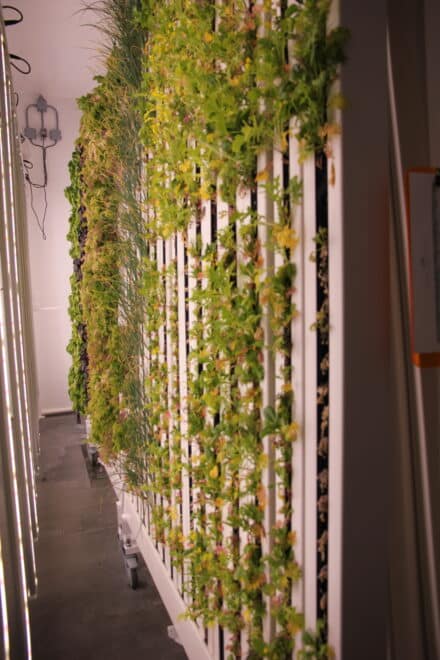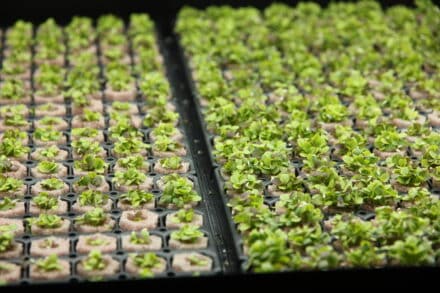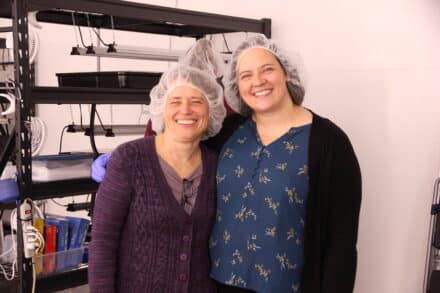Springboard members help urban farm adopt greener practices
December 13th, 2023
From the Springboard Content Lab
A research collaboration by Springboard, Acadia University and Saint Mary’s University is helping a Nova Scotia vertical farm adopt more sustainable practices by using a natural growing medium and by recycling harvest by-products to grow food.

Urban Lighthouse Farm is set up in an indoor facility which uses hydroponic technology, LED lighting and automated temperature controls to produce leafy greens, herbs, and mushrooms. Crops are grown on vertical surfaces to produce more food using less space than traditional horizontal fields. No pesticides are used on this farm.
The research challenge: to use and reuse organic coconut coir as a growing medium
Wolfe’s journey to sustainable vertical farming began with an idea to use coconut coir as a growing medium (substrate) for leafy greens and herbs, and then reuse the coir to grow specialty mushrooms. Coconut coir is an eco-friendly growing material made from the husk of the coconut shell.
He needed research expertise to prove that the idea would work.
Enter Acadia University and Saint Mary’s University with expertise
Wolfe was introduced to Katrin Sommerfeld at Acadia’s Office of Industry & Community Engagement by the Community Business Development Corporation (CBDC) Atlantic, to explore whether Acadia could help with his research questions.

The two research teams went to work on the project. The Acadia team successfully grew leafy greens and herbs using the coconut coir substrate. Saint Mary’s then used the recycled coir to grow specialty mushrooms in their lab.
The researchers prepared a procedural manual to help Wolfe implement these processes into his vertical farm operation.
Research support helps farm’s sustainability
Sommerfeld and Goodfellow helped Wolfe source funding from the Springboard 360 Series on Agrifood to support the research. They also secured two grants from the National Research Council – Industry Research Assistance Program (NRC-IRAP.)

He said the research conducted by Acadia and Saint Mary’s will lead to cost savings in production, lower water usage and a greener farm. He hopes that ULF will contribute to Nova Scotia’s goal of achieving 20 percent locally produced food production by 2030.
Vertical farm attracts interest of Nova Scotia premier
In November, Wolfe hosted Nova Scotia Premier Tim Houston on a tour of his vertical farm. The farm also hosted the Minister of Environment and Climate Change Tim Halman and joined by MLAs Steve Craig and Dave Ritcey. Urban Lighthouse Farm looks forward to showing Minister Tory Rushton and Minister Greg Morrow in the new year.
“Without having the academic minds of Acadia and Saint Mary’s to confirm my idea in a lab setting and organizations like Springboard to support me, it would still be just an idea,” Wolfe said.
Springboard Atlantic is a network of 19 colleges and universities specializing in research commercialization and industry-led research in Atlantic Canada. It is supported by the Atlantic Canada Opportunities Agency and Innovation, Science and Economic Development Canada.
